Cet article est également disponible en : Français
Many people dream of leaving. Some do it. All travelers will tell you that the two most difficult moments of a trip are the decision to leave and the return. But in the end, do we ever come back from a great trip?
“A hundred reasons call you to leave. You leave to touch human identities… You leave to encounter the changing forms of faith. You leave because you are still young and eager for stimulation…you leave because you are old and need to understand something before it is too late. ”
Nicolas Bouvier wrote it, there are 100 reasons to leave. Some leave for 6 months, others for 1 year and some for several years. But, one day or another, there is always a return. Back to friends, back home, back to “normal” life. No one thinks about this return at the beginning, or even, most of the time, during the trip, except maybe in the last weeks. I imagine that some people are waiting for it impatiently. Those that the road has worn a little too much. Those that the trip has undone and wrung out a bit too much. For others, on the contrary, the idea of this reverse journey provokes nightmares and sleepless nights. Anxiety sets in, burning, oppressive.
Ah, but I can hear you from here. How? How? They went on vacation for months and complain about having to work when they get back? What a laugh!
Yes, in a way you are right. Sure, we went away for months or more. Certainly, we visited beautiful places. Certainly, our daily life was filled with improbable and unforgettable meetings. Certainly, we did not have to face the wearing routine of the famous subway-work-sleep.
But every medal has its reverse, every yin has its yang. And traveling means facing months of discomfort and hellish roads. It means going to bed at night with sore muscles and bones. Very often, daily life is nothing but sweat and dust. Fear too. We have to face realities that the western world has not prepared us for: misery, hunger, thirst, stench. And even death. Some of us experience illness, food poisoning, sometimes severe, accidents and injuries. We have to adapt. And grit our teeth until it passes. Sometimes discouragement overwhelms us. Loneliness too. And then we have our daily life, which is sometimes tedious: administrative formalities, requesting visas or a new passport, negotiating exchange rates, looking for drinking water, repairing our equipment, looking for spare parts for our mount. And all of this in climatic conditions that are sometimes harsh: extreme cold of the high mountains, or on the contrary heat and humidity of the equatorial regions. We must not forget the wind, the lightning, the torrential rains, the sand, the stones, the wild animals. With only a fragile canvas tent for shelter.
After all that, going back is not easy. As much as the immersion in the nomadic life is progressive, the return is abrupt, a brutal fall in a life that is normal for most of us, but that seems to be only an alternative reality for us travelers.
For my friend, Luc Cotterelle, it was violent. First, there was the highway. For him, it remains the symbol of a brutal acceleration of time. The passage from a time when each person crossed was the occasion of an exchange, even if only a glance, to a kind of insensitive frenzy. He stopped trembling at the end of the acceleration path, unable to join this modern rationality. It is not uncommon for the traveler to have only one desire: to turn around and go back.
However, one must stay. Money is often the imperative. Nicolas Bouvier said “The virtue of a journey is to purge life before filling it”. Yes, but fill it with what? This is THE question the traveler must answer at the end of his voluntary wandering.
He begins by filling it with his friendships. This is both pleasant and difficult.
Pleasant because after months, even years of intense but ephemeral relationships, finding a real social link is a vital necessity.
Difficult, because the gap is large. First of all, there is the time lag. Luc speaks of the relativity of time. We return to a reality that often seems the same as when we left. Luc left for almost 3 years. Yet his journey seemed to last a lifetime, so intense was it. On the other hand, his friends, those he had left and was meeting again, seemed to him to have lived only 6 months in the same period of time: same routine, same worries, in a word, same life. For them, nothing had changed and a day 3 years ago was strangely identical to the present day.
But beyond this temporal shift, there is the shift of being. Those who stayed have not changed. The one who returns is another version of himself. A sort of twin. And also, he wants to share, to tell. But how to share the unbelievable? How to share the fury of life? It is almost impossible. Some friendships disintegrate and it is with a certain sadness that the traveler sees his boat drift away from his former affections. For the others, those who remain on the shore, it is often incomprehension.
The traveler then enters a period of blues. He is at the same time here and elsewhere. A very particular schizophrenia. On the one hand, he tastes and savors the newfound comfort. Everything seems so easy to him! But on the other hand, very quickly the routine weighs on him. And he starts to wither, becoming irritable, sometimes even aggressive and he takes refuge in a form of voluntary solitude.
But in the end, the desire to share remains compelling. Luc has found a way to do this by making a magnificent film that I recommend to you: “Terre propice”. It was a way for him to delay the return. To stay in the journey. As for me, I wrote a book, but it was so buried in the depths of my soul that it took it took me 10 years to bring it out. During this phase, contact with other travelers is often beneficial. We understand each other: we have experienced the same thing. Personally, I like to advise young people, or less young people who are preparing to leave. It is a way like any other, once again to share and pass on the torch.
Very prosaically, beyond filling one’s life, there always comes a time when one must fill one’s bank account. The most convenient solution is to start over and find a job in your field of expertise. I won’t hide it from you: it’s hard, very hard even. In these cases, it can be beneficial to change employers – I’m talking for those who have taken a sabbatical. But for some, like Luc, this option is not conceivable. So comes the question, thrown out as a joke, but oh so serious: what am I going to do when I grow up? Luc answered this question by training to be a beekeeper, and now by building an isolated house at an altitude of 1200 m in the Chartreuse region, without any modern conveniences.
But does this mean that all returns are equally difficult? There are notable exceptions. This was the case for Jérôme. A former motorcycle traveler converted to the “little queen”, he left for two years by bike to Japan. He came back on December 24th. It was the ideal time to meet his family and friends. Immediately afterwards, and despite his 44 years old, he took the nursing exam. This new project allowed him to move from one intensity to another, which was certainly different, but which, de facto, placed him outside his comfort zone. In both cases, he had to face the new and overcome a new challenge. With his friends, on the whole, it went well. But unlike most of the other travelers, he already had experience of this gap, due to a large previous experience of life in expatriation.
For Maral the Iranian, the return was marked by a new life in the literal sense of the word: she gave birth less than 3 months after her return. Her trajectory is remarkable, she went from being a businesswoman, to a traveler to finally carry out the most beautiful project there is: being a mother. Yet, despite this, she confided to me that it took her a while to really stop feeling that feeling of being both at home and elsewhere, somewhere on the road.
As a conclusion, friend reader, I will end with this little text from my book, the blue bandana:
“The traveler when he returns is no longer the same as before. Even if he is here among you laughing, drinking or eating, a part of him will always be elsewhere, in other lands, somewhere on the road.
The traveler is an infidel. He can leave you overnight without a word and leave without looking back.
The traveler is a faithful one who keeps you in his heart forever. He can come back and sit at your table to resume a conversation started ten years before as if nothing had happened.
The traveler is a landlubber, deeply rooted in this land whose humidity, smells, dryness and wounds he has learned to taste. He has a physical need to feel the clay or the sand under his feet, in his hands made calloused by the miles.
The traveler is an emotion junkie. He needs his dose, his shot, otherwise he is in lack, he gets depressed, he dies. Life seems to him bland, without flavor, without relief, desperately dull.
The traveler is a nomad, he doesn’t live anywhere, he just goes. And even if he settles down for a while, he will leave again one day. ”
Maral, more than two years after his return, still hasn’t unpacked his motorcycle.

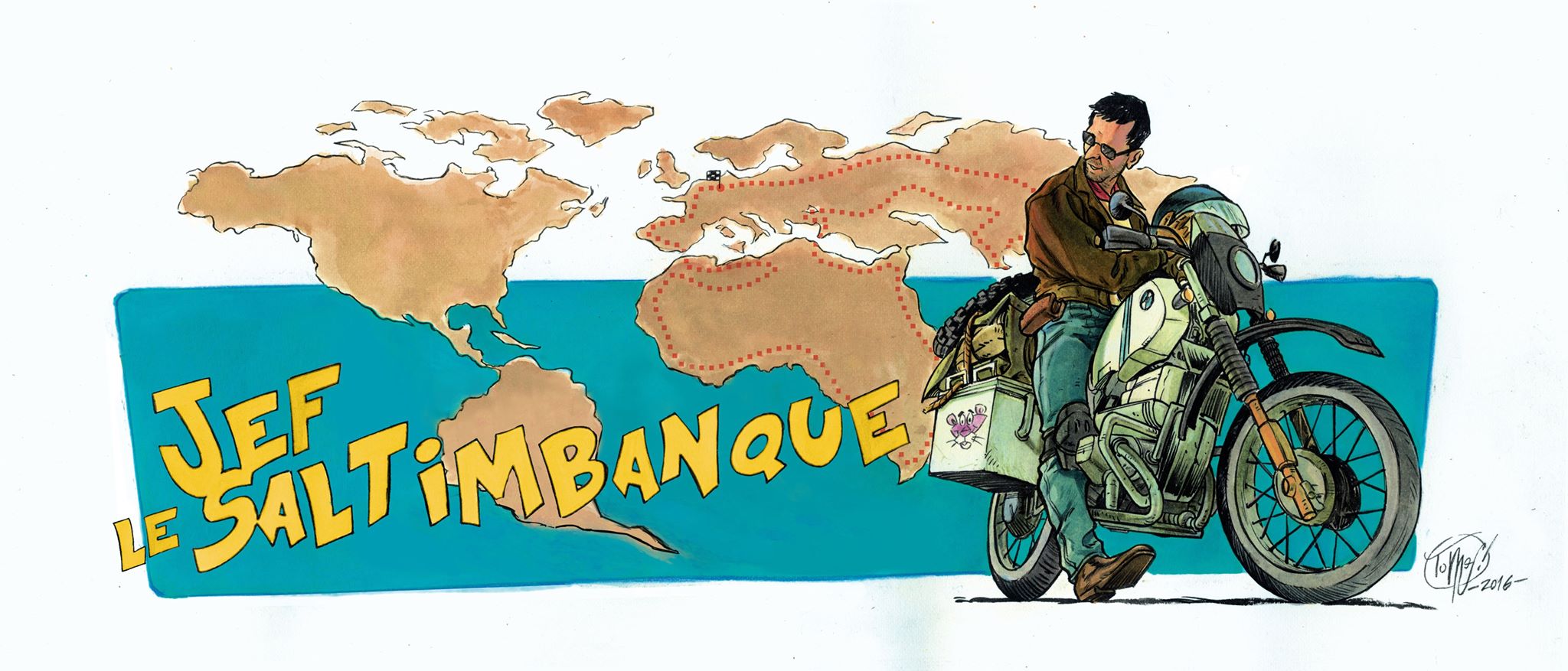
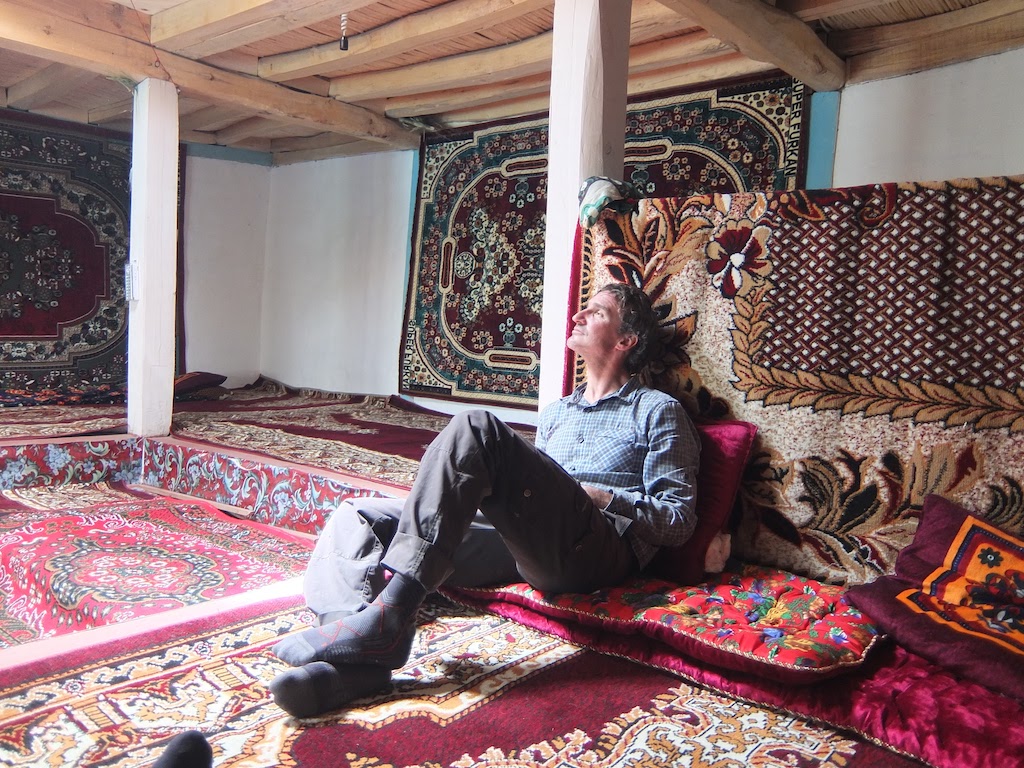
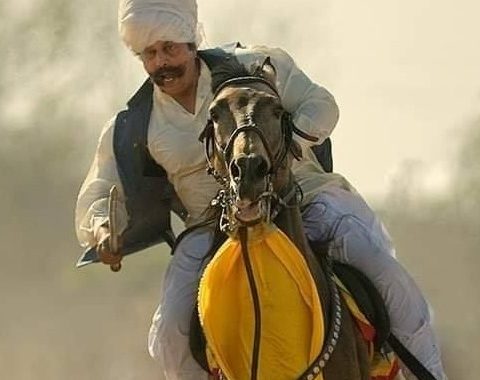
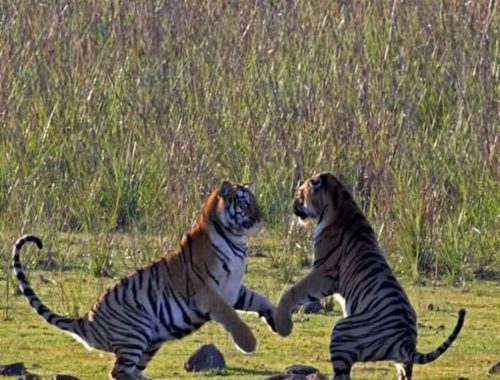
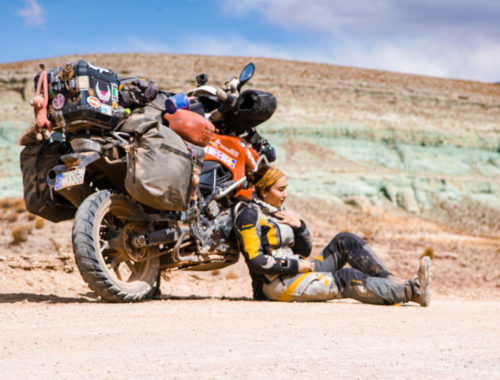
No Comments